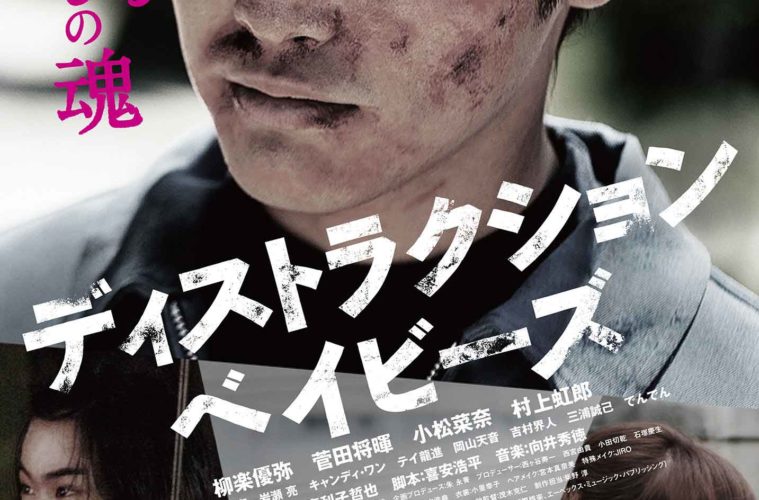If Sion Sono directed the “Pick a fight with a stranger” sequence from Fight Club without any fantastical flourish, it’d come out something like Destruction Babies. That one sentence might be enough to turn certain people off ever watching this film – and fair enough, since there’s a minimal chance they’d even remotely like it. Hell, even if that description intrigues you, this movie might still not be for you. It is willfully, aggressively unpleasant, a domino string of violent scenes that are deliberately anti-entertaining.

Think about the usual mechanics of cinematic fight scenes, and Destruction Babies does the opposite. The camera spectates from a cold, steady remove. There’s zero feeling of choreography, as combatants flail about messily, missing their punches and kicks as often as they hit. There are few fancy moves – men dance around one another until one of them pins the other and then proceeds to pummel him mercilessly, often with buddies jumping in to help. The soundscape is of slaps and grunts and muffled blows, no heightened Hollywood meat-crack effects. And they drag on, far past the point of comfort, as dogged and persistent as the teenage protagonist, Taira (Yûya Yagira).
Taira is a rabid dog, wandering Matsuyama without any purpose besides picking random fights with strangers, which often result in him lying on the ground, spitting teeth. What reason, if any, he has for this beyond a hunger for doling out and receiving pain is left out – Yagira offers little dialog but a lot of smug smiles that are appropriately infuriating. Taira’s younger brother Shota (Nijirô Murakami) feels similar antisocial pulls but seems mostly normal, and searches for him without success. Taira’s spree becomes something like a quest after he encounters Yuya (Masaki Suda), a born lickspittle who latches onto him and goads him into worse and worse assaults, filming them on his phone and talking about them like it’s all a video game.

Destruction Babies torques the discomfort as it progresses. At first, Taira only fights other young men – an “acceptable,” common form of movie violence. Later, girls are attacked as well, something audiences are far less desensitized to. Things degrade further to kidnapping, sexual assault, and various murders. The idea of violence as a disease isn’t new, but this film’s experience of it actually feels like a sickness spreading through your gut; the ultra-realistic style enhances the savagery. The closest thing to a hero is Nana (Nana Komatsu), a shoplifting yakuza moll who gets swept up in Taira and Yuya’s rampage and still can’t get out with clean hands. The rot turns even victims into perpetrators.
Meanwhile, bystanders can only gawk or snap pics, the authorities seem helpless, and the media is clearly loving it. That element of the script feels too obvious, even if it’s all too true to life. But the film’s strongest tie between its brutal characters and society at large is expressed in scenes of the Matsuyama Fall Festival, in which rival teams ram portable shrines against one another – allegedly in the spirit of fun and tradition, but with many furious faces seen in the crowd. Destruction Babies has an ugly soul. It cuts and bruises its own face, then stares you in the eye until you must look away. Co-writer/director Tetsuya Mariko’s commentary may be broad, but the blow lands nonetheless.
Destruction Babies screened at Locarno in Los Angeles.

